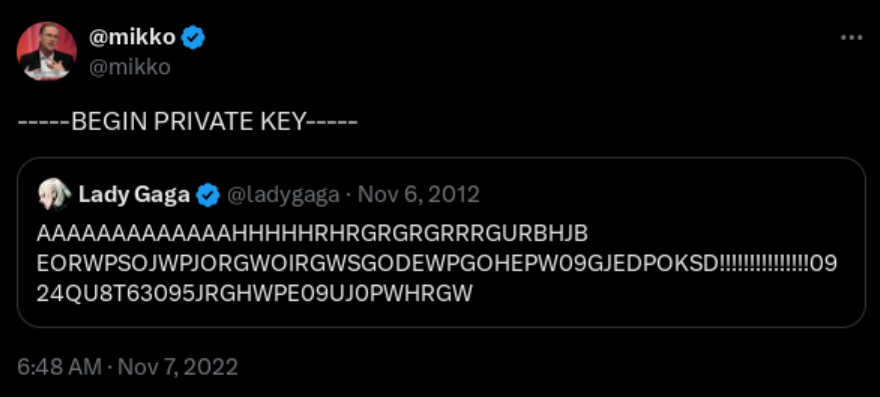this post was submitted on 20 Jul 2024
1604 points (98.5% liked)
linuxmemes
20644 readers
1533 users here now
I use Arch btw
Sister communities:
- LemmyMemes: Memes
- LemmyShitpost: Anything and everything goes.
- RISA: Star Trek memes and shitposts
Community rules
- Follow the site-wide rules and code of conduct
- Be civil
- Post Linux-related content
- No recent reposts
Please report posts and comments that break these rules!
founded 1 year ago
MODERATORS
you are viewing a single comment's thread
view the rest of the comments
view the rest of the comments

I wonder if you string together enough words can it be a valid key?
I would hope so, sentences and words are some of the most secure passwords/phrases you can use
The part where this falls flat is that using dictionary words is one of the first step in finding unsecured password. Starting with a character by character brute force might land you on a secure password eventually, but going by dictionary and common string is sure to land you on an unsecured password fast.
Even if an attacker knew that your password was exactly four words from a specific list of only 2048 common words, that password would still be more secure than something like
Tr0ub4dor&3https://www.explainxkcd.com/wiki/index.php/936:_Password_Strength
If the attacker search for your password specifically then xkcd themself posted the reason why it wouldn't really matter
https://www.explainxkcd.com/wiki/index.php/538:_Security
If you're doing blind attemps on a large set of users you'll aim for the least secured password first, dictionary words and known strings.
No, it would not. 2048 to the power of 4 is significantly less than 60 to the power of 11.
https://www.wolframalpha.com/input?i2d=true&i=Power%5B2048%2C4%5D%E2%80%94Power%5B60%2C11%5D
That's true but in practice it wouldn't take 60^11 tries to break the password. Troubador is not a random string and all of the substitutions are common ( o -> 0, a ->4, etc. ). You could crack this password a lot easier with a basic dictionary + substitution brute force method.
I'm saying this because I had an assignment that showed this in an college cybersecurity class. Part of our lesson on password strength was doing a brute force attack on passwords like the one in the top of the xkcd meme to prove they aren't secure. Any modern laptop with an i5 or higher can probably brute force this password using something like hashcat if you left it on overnight.
Granted, I probably wouldn't use the xkcd one either. I'd either want another word or two or maybe a number/symbol in between each word with alternating caps or something like that. Either way it wouldn't be much harder to remember.
except it is not troubador. it is troubador, ampersand, digit.
if you know there are exactly two additional characters and you know they are at the end of the string, the first number is really slightly bigger (like 11 times)
once the random appendix is 3 characters or more, the second number wins
https://www.wolframalpha.com/input?i2d=true&i=Divide%5BPower%5B2048%2C4%5D%2CPower%5B256%2C3%5DPower%5B2%2C4%5D4*500000%5D
and moral of the story is: don't use xkcd comic, however funny it is, as your guidance to computer security. yes, the comic suggestions are better than having the password on a post-it on your monitor, but this is 21st century ffs, use password wallet.
this is pretty much irrelevant, as the amount of passwords with n+1 random characters is going to be exponentially higher than ones with n random characters. Any decent password cracker is going to try the 30x smaller set before doing the bigger set
that knowledge is worth like 2 bits at most, unless the characters are in the middle of a word which is probably even harder to remember
even if you assume the random characters are chosen from a large set, say 256 characters, you'd still get the 4-word one as over 50 times more. Far more likely is that it's a regular human following one of those "you must have x numbers and y special characters" rules which would reduce it to something like 1234567890!?<^>@$%&+-() which is going to be less than 30 characters
and even if they end up roughly equal in quessing difficulty, it is still far easier to remember the 4 random words